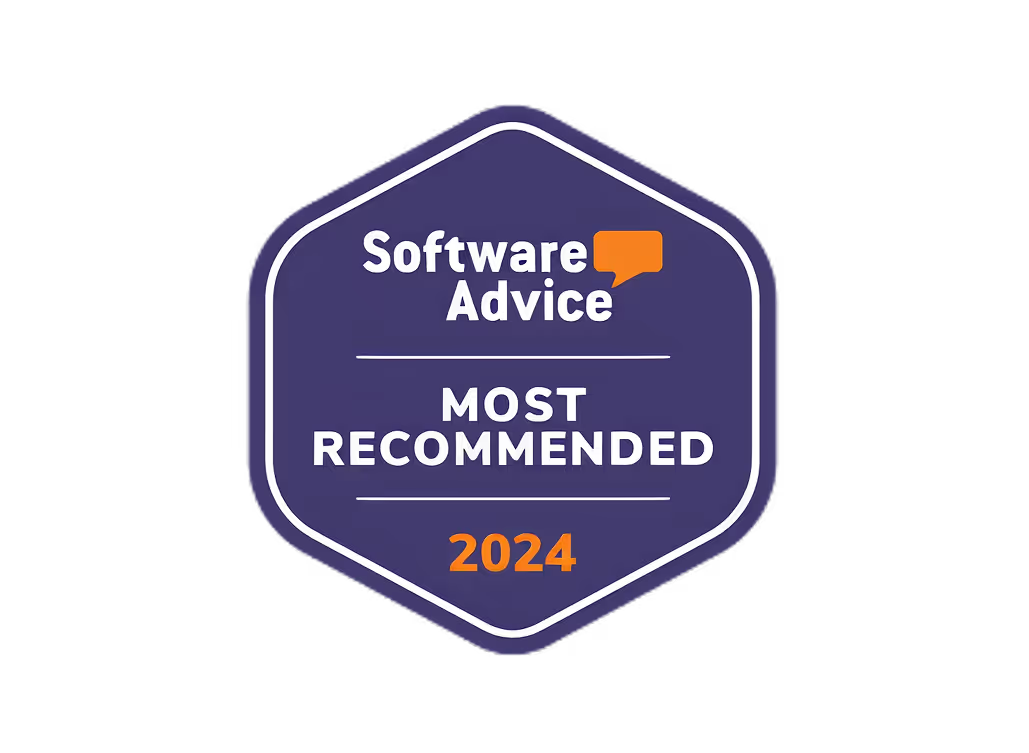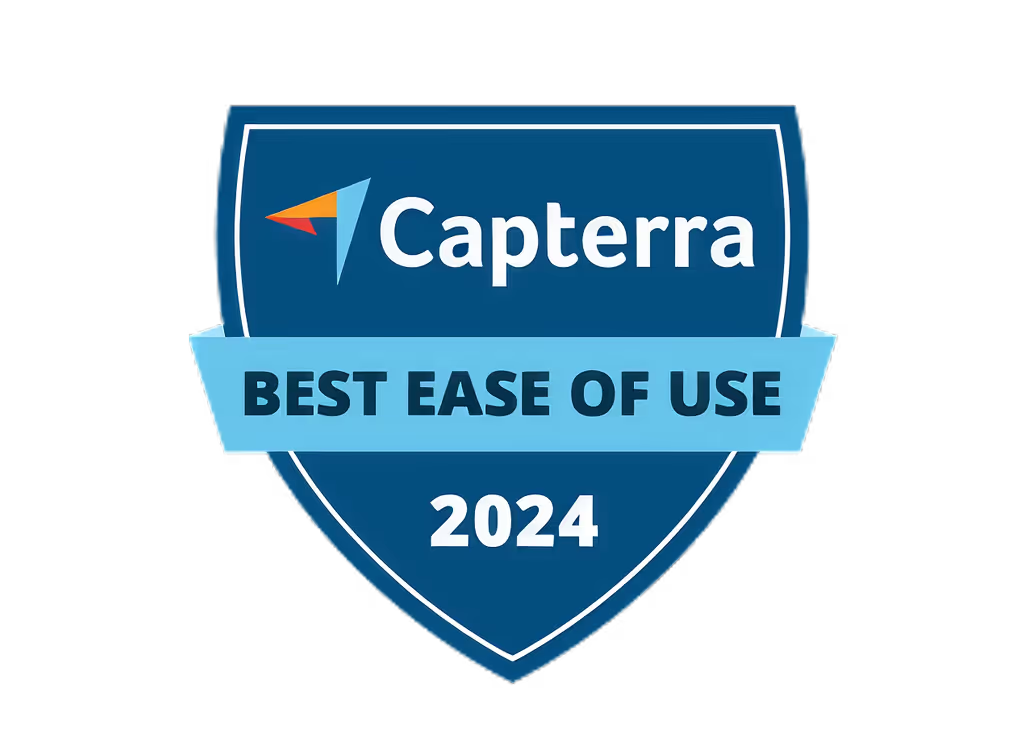Unlock Growth: Finding the Right B2C Marketing Agency for Your Brand in 2025

Finding the right B2C marketing agency can feel like a big deal, especially with so many options out there. You want a partner who really gets your brand and knows how to connect with consumers in 2025. It's not just about pretty ads; it's about smart strategies that actually bring in customers and boost your business. This guide is here to help you figure out what to look for, how to check if an agency is the real deal, and what questions to ask so you can make a choice you won't regret.
Key Takeaways
- A specialized B2C marketing agency understands the unique path consumers take and can build a consistent brand experience across all touchpoints.
- Look for agencies that use data to understand your specific customers, not just general assumptions, and can show you proof with relevant case studies.
- Effective B2C marketing relies on tracking the right numbers, like customer lifetime value and cost per acquisition, to know what's really working.
- Stay updated on new trends like AI in creative work and how to gather customer data without relying on third-party cookies.
- When choosing an agency, ask direct questions about their team, their strategy for understanding your customers, and how they report on results and costs.
Defining Your Needs: What to Look For in a B2C Marketing Agency
So, you're looking to team up with a marketing agency for your consumer brand. That's a big step, and honestly, it can feel a bit overwhelming with all the options out there. Before you even start looking, it's super important to get clear on what you actually need. Think of it like planning a trip – you wouldn't just book a flight without knowing where you want to go, right? Same idea here.
Understanding Specialized B2C Agency Expertise
Not all marketing agencies are created equal. Some are great at, say, business-to-business (B2B) marketing, which is a whole different ballgame. B2C marketing is all about connecting with individual consumers. This means understanding things like impulse buys, emotional triggers, and how people make quick decisions. An agency that really gets B2C will have a track record of working with brands that sell directly to people like you and me. They know how to talk to consumers in a way that makes sense to them, not just in business jargon.
Identifying Key Services for Consumer Brands
What exactly do you want this agency to do for you? It's not just about posting on social media. You might need help with:
- Brand Building: Making sure your brand's look, feel, and message are consistent everywhere.
- Digital Advertising: Running ads on platforms like Google, Facebook, Instagram, and TikTok.
- Content Creation: Developing blog posts, videos, graphics, and other stuff that people want to see and share.
- Search Engine Optimization (SEO): Helping people find your website when they search online.
- Email Marketing: Building relationships with customers through email. customers through email, often supported by an email warmup tool to boost deliverability and engagement rates.
Think about where your brand needs the most help. Are you struggling to get noticed online? Is your social media presence a bit weak? Pinpointing these areas will help you find an agency that has the right skills.
Assessing an Agency's Approach to Consumer Psychology
This is where things get interesting. A good B2C agency doesn't just guess what consumers want; they have a method for figuring it out. They'll talk about how they research your target audience, looking at things like:
- Demographics: Age, location, income, etc.
- Psychographics: Lifestyles, values, interests, and opinions.
- Behavioral Data: How people interact with your brand and similar ones.
They should be able to show you how they use this information to create marketing messages that actually connect with people on an emotional level, not just a logical one. It's about understanding why someone clicks 'buy' and making sure your brand is the one they choose.
Ultimately, you want an agency that feels like an extension of your own team, one that truly understands the people you're trying to reach.
Evaluating Potential B2C Marketing Partners

Finding the right agency is a big deal, and honestly, it can feel a bit overwhelming with so many options out there. It's not just about picking someone who talks a good game; you need a partner who can actually show you how they'll help your brand connect with customers and grow. Think of it like hiring a new team member – you want someone who gets your vision and has the skills to make it happen.
Data-Driven Insights and Persona Development
This is where you separate the pretenders from the real players. A good agency won't just guess who your customers are; they'll have solid data to back up their claims. They should be able to show you detailed profiles of your ideal customers, not just broad strokes, but actual insights into their habits, needs, and where they hang out online. This means they've done their homework, looking at your current customer data and market trends.
- Research-backed customer profiles: They present detailed customer groups based on actual research, not just hunches.
- Understanding motivations: They can explain why certain customer groups buy, not just who they are.
- Identifying pain points: They know what problems your customers are trying to solve and how your brand fits in.
The agency should be able to articulate how their understanding of your audience directly influences the marketing strategies they propose. It's about showing a clear line from data to action.
Strategic Channel Selection and Audience Alignment
Once they know who they're talking to, the next step is figuring out the best places to reach them. This isn't a one-size-fits-all situation. An agency worth its salt will know which social media platforms, search engines, or other digital spaces your target audience actually uses and engages with. They won't just suggest every platform under the sun; they'll pick the ones that make the most sense for your specific goals and customer base.
- Platform expertise: They know the ins and outs of platforms like Instagram, TikTok, Facebook, and others relevant to your audience.
- Audience mapping: They can show you how different channels reach different segments of your target market.
- Budget allocation: They propose how to best spend your marketing money across chosen channels for maximum impact.
Reviewing Relevant Case Studies and Client Success
Talk is cheap, right? This is where you ask for proof. A strong agency will have a portfolio of past work that shows they've helped brands similar to yours achieve real results. Don't just look at pretty pictures; dig into the details. What were the goals? What strategies did they use? And most importantly, what were the measurable outcomes? Look for success stories that align with your business model and objectives.
The ultimate measure of success is often the Return on Ad Spend (ROAS), showing a direct link between marketing investment and revenue generated.
The Crucial Role of Data and Analytics in B2C Marketing
Look, in 2025, you can't just guess what works anymore. Throwing money at ads without knowing where it's going or what it's doing is a fast track to nowhere. That's where data and analytics come in. They're not just fancy buzzwords; they're the engine that drives real growth for B2C brands. Think of it like this: you wouldn't drive across the country without a map, right? Data is your map for marketing.
Leveraging Advanced Attribution Models for ROI
Figuring out which marketing efforts are actually bringing in money can be a real headache. Simple metrics like clicks or how many people saw your ad don't tell the whole story. Agencies that know their stuff go deeper. They use advanced models to track what really matters to your bottom line. This means understanding things like:
- Customer Lifetime Value (CLV): How much revenue a customer is likely to bring in over their entire relationship with your brand.
- Cost Per Acquisition (CPA): The total cost it takes to get one new paying customer.
- Return on Ad Spend (ROAS): The revenue generated for every dollar spent on advertising. A 4:1 ratio is often seen as a good target for direct-to-consumer brands.
Knowing these numbers lets an agency show you exactly where your money is working hardest and where it's not. They can then tweak things to make sure you're getting the most bang for your buck.
Tracking Key Performance Indicators for Growth
So, what should you actually be watching? It's not just about vanity metrics. You need to focus on indicators that point to real business growth. Some key ones include:
- Conversion Rate: The percentage of people who take a desired action, like making a purchase or signing up for a newsletter. Improving this means making your website and calls-to-action clearer.
- Customer Lifetime Value (CLV): As mentioned, this shows the long-term worth of your customers.
- Attribution Models: These help you understand which touchpoints in the customer journey led to a conversion. Options range from simple First Click or Last Click models to more complex Data-Driven Attribution (DDA) or Multi-Touch Attribution.
Utilizing Data to Optimize Marketing Spend
This is where the magic happens. Once you have the data, you can start making smart decisions. For example, if data shows that a particular audience segment responds much better to video ads, you can shift more budget there. Or, if analytics reveal that a specific ad creative is getting stale (leading to lower click-through rates and higher costs), you know it's time to refresh it. Agencies use tools to constantly monitor these trends and make adjustments on the fly.
The path to purchase for consumers today is rarely a straight line. It can involve dozens, even hundreds, of interactions before a decision is made. Understanding this complex journey through data allows marketers to build trust and create a consistent experience across all these touchpoints, turning casual browsers into loyal customers. This integrated approach is key to building lasting brand relationships.
It's about being smart, not just spending big. By paying close attention to what the data tells you, you can make your marketing budget work much harder and achieve better results, faster.
Navigating the Evolving Digital Landscape
The online world for B2C brands is always shifting, and honestly, it can feel like a lot to keep up with. What worked last year might not even get a second glance today. Algorithms on platforms like Instagram and TikTok change without much warning, and what people are talking about online can flip on a dime. Trying to stay on top of all these updates and trends can feel like a full-time job on its own.
Staying Ahead of Platform Algorithms and Trends
Agencies that focus on B2C marketing live and breathe this stuff. Their teams are constantly watching for new features, algorithm tweaks, and emerging consumer interests. This means your brand's campaigns don't get left behind. They can pivot quickly, making sure your ads and content are seen by the right people at the right time, instead of just fading into the background.
Adapting to Cookieless Targeting and First-Party Data
Remember those third-party cookies that used to track everyone everywhere? Well, they're pretty much on their way out. This is a big deal for how we target ads. Instead of relying on those old methods, smart agencies are now focusing on building direct relationships with customers. This means collecting information directly from your audience – think email sign-ups from a website pop-up, loyalty program details, or even answers from a quick on-site quiz. It's about getting to know your customers personally and ethically.
Embracing AI-Powered Creatives and Conversational Search
Artificial intelligence is changing the game for ad creation. Tools can now help generate images and even videos tailored to specific customer groups, making your ads feel more personal. Plus, with more people using voice assistants like Alexa or Google, and even searching visually on platforms like Pinterest, how you present your products matters. Agencies are looking at how to make sure your products can be found easily through these new search methods, and using chatbots to help customers right when they have questions.
The digital marketing space is a moving target. What's effective today might be obsolete tomorrow. Brands need partners who are not just aware of these shifts but are actively preparing for them, using new tools and strategies to maintain visibility and connection with consumers.
Here's a quick look at how things are changing:
- Algorithm Shifts: Platforms constantly update how they show content. Agencies monitor these changes to keep your brand visible.
- Data Privacy: With cookies disappearing, the focus is on collecting customer data directly and with consent.
- New Search Methods: Voice and visual search are growing, requiring different approaches to product listing and content.
- AI in Content: AI tools can help create more personalized and scalable ad creatives.
This constant evolution means that a marketing agency needs to be more than just a service provider; they need to be a forward-thinking partner, ready to adapt and innovate alongside the digital landscape.
Assessing Agency Capabilities and Service Offerings

When you're looking for a B2C marketing agency, it's not just about what they say they can do, but how they actually do it. You need to get a real feel for their day-to-day operations and the tools they use. Think about it like hiring a contractor for your house – you want to know they have the right tools for the job, not just a fancy sales pitch.
Integrated Social Media Strategy and Community Building
Social media is more than just posting pretty pictures. A good agency will have a plan for building a real community around your brand. This means understanding your audience, creating content that sparks conversation, and knowing how to handle feedback, both good and bad. They should be able to show you how they've grown online communities for other brands.
- Content Calendar Development: Planning posts in advance to keep your brand consistent.
- Engagement Tactics: Strategies to get your audience talking and interacting.
- Community Management: Responding to comments and messages to build relationships.
- Influencer Collaboration: Working with the right people to reach new audiences.
Performance-Driven Paid Advertising Across Platforms
Paid ads can be a huge part of your marketing budget, so you need an agency that knows how to spend your money wisely. They should be able to explain their approach to platforms like Google Ads, Facebook, Instagram, and TikTok. It's important they can show you how their ad campaigns directly lead to sales or leads, not just likes and shares. Look for agencies that focus on metrics like Return on Ad Spend (ROAS) and Customer Acquisition Cost (CAC). They should also be up-to-date on the latest changes in ad platforms, especially with the industry seeing significant workforce reductions in marketing agencies.
Content Development and Long-Term Growth Planning
Content is king, as they say, but it needs to be the right kind of content. An agency should be able to create blog posts, videos, infographics, and more that not only grab attention but also help your brand grow over time. This involves understanding SEO, creating content that answers customer questions, and planning for the future. They shouldn't just be thinking about a quick campaign; they should be thinking about how to build lasting value for your brand. A solid plan for content marketing is key here.
The best agencies don't just execute tasks; they act as strategic partners. They should demonstrate a genuine interest in your business, asking thoughtful questions about your goals and challenges before proposing any solutions. This curiosity is a strong indicator of their commitment to your success.
Understanding Investment and Measuring Early Success
So, you've found a few agencies that seem like a good fit. Now comes the part where we talk about money and how to tell if it's actually working. It’s easy to get lost in the details, but really, it boils down to a few key things.
Typical Investment Models for B2C Agency Partnerships
When you partner with a B2C marketing agency, you're investing in their know-how and their team's time. The way you pay can vary, and it usually depends on what you need them to do. Most agencies offer a few common structures:
- Monthly Retainer: This is pretty standard. You pay a set fee each month, which covers ongoing work like strategy, creating content, and managing your accounts. These can range quite a bit, from around $5,000 for smaller scopes to well over $50,000 if you need a lot of hands-on help.
- Percentage of Ad Spend: If the agency is primarily running your paid ads, they might take a cut of your ad budget. This is often between 10% and 20% of what you spend on ads each month. It ties their success directly to how much you're willing to invest in advertising.
- Project-Based Fees: For big, one-off projects, like launching a new product or a major website overhaul, you might pay a fixed price for that specific job. These can start at $15,000 and go up significantly depending on the project's size.
Choosing the right payment model is about finding a structure that feels fair and aligns with the expected outcomes. It should make sense for your budget and the agency's responsibilities.
Key Metrics for Evaluating Performance in the First 90 Days
The first three months with a new agency are all about getting things rolling and seeing some initial wins. You don't expect miracles overnight, but you do want to see progress. Here’s what to keep an eye on:
- Awareness: Is more people seeing your brand? Look at things like website traffic growth and how many times your social media posts are seen (impressions).
- Consideration: Are people getting more interested? Check if your click-through rates (CTR) are improving and if visitors are spending more time on your website.
- Conversion: Are people actually buying? You want to see your cost per acquisition (CPA) go down, meaning it costs less to get a new customer, and an increase in overall sales.
The Importance of Return on Ad Spend (ROAS)
At the end of the day, the most important number is usually your Return on Ad Spend, or ROAS. This metric directly shows you how much money you're making back for every dollar you spend on advertising. A good ROAS means the agency's efforts are translating into real revenue for your business. For many direct-to-consumer (D2C) brands, a ROAS of 4:1 (meaning $4 in revenue for every $1 spent on ads) is a solid target to aim for. It's the clearest sign that your marketing investment is paying off.
Asking the Right Questions During Agency Selection
So, you've narrowed down your list of potential marketing partners. That's great! Now comes the really important part: the interview. This isn't just a formality; it's your chance to really see who's behind the proposal, how they think, and if they can actually talk the talk. You need to go beyond the slick presentations and dig into the nitty-gritty. Come prepared with questions that make them think, questions that challenge their ideas, and questions that get to the heart of their past successes. It’s all about verifying what they claim and making sure they're a genuine fit for your brand.
Probing Questions About Consumer Research and Strategy
Before an agency starts talking about ads and social posts, they should be talking about your customers. A good agency won't just guess who your audience is; they'll show you how they know. Ask them directly about their process for understanding consumers. How do they gather information? What tools do they use? And most importantly, how will those insights actually shape the marketing plan they create for you? You want to see a clear line from customer research to strategic action.
- What specific methods do you use to research and define target consumer personas?
- How do you validate these personas with real-world data?
- Can you explain how your consumer insights directly influence campaign strategy and creative development?
A truly strategic partner shows genuine curiosity about your business before they even think about solutions. They should be digging into your industry, who you're trying to reach, and what your competitors are up to. If they don't ask a lot of questions about your customers and your market, that's a bit of a red flag.
Inquiring About Team Expertise and Account Management
When you hire an agency, you're not just buying a service; you're investing in a team. It’s vital to know who you’ll actually be working with on a day-to-day basis. A clear team structure means better accountability and smoother communication. Don't be afraid to ask about the people behind the work.
- Who will be the primary point of contact for our account, and what is their background?
- What is the experience level of the specialists who will be working on our campaigns (e.g., paid media buyers, content creators, SEO analysts)?
- How is your team structured to handle client requests and project management?
Clarifying Reporting, Reviews, and Contractual Terms
This is where things can get a little dry, but it's super important. You need to know how success will be measured and what the financial and legal agreements look like. Vague reporting or confusing contracts can lead to problems down the road. Clarity in reporting and contracts is a strong indicator of a trustworthy partner.
- Reporting: How often will we receive performance reports? What key metrics will be included, and how will they tie back to our business goals? Can you provide an example report?
- Reviews: How frequently will we have strategic review meetings to discuss performance and adjust plans?
- Contracts: Can you walk us through the key terms, including the scope of work, payment schedule, contract duration, and cancellation policy? What happens to our data and assets if we decide to end the partnership?
It's also wise to ask about trial periods or performance-based compensation models. A confident agency should be willing to demonstrate its value before you commit to a long-term, inflexible contract. Remember, you're looking for a partner, not just a vendor.
Your Next Steps for Growth
So, finding the right marketing agency for your brand in 2025 isn't just about picking a name from a list. It's about really looking at what they do and if it fits what you need. Think about what you want to achieve – more sales, better brand recognition, or maybe both. Then, find an agency that has a track record of doing just that. Don't be afraid to ask tough questions and check out their past work. A good partner will make a big difference in how your business grows. It’s a big decision, but getting it right means you’re setting yourself up for success in the year ahead.
Frequently Asked Questions
What makes a B2C marketing agency different from a general marketing agency?
Think of it like this: a general agency might know a little about a lot of things. A B2C agency, however, is like a specialist doctor who knows everything about selling directly to people like you and me. They understand how shoppers think, what makes them click 'buy,' and how to build a brand that people love. They're experts at talking directly to consumers, not just businesses.
How can I tell if an agency really gets my customers?
A good agency won't just guess who your customers are. They'll show you proof! Look for agencies that use real data to create customer profiles, not just hunches. They should also suggest using the social media platforms your customers actually hang out on and have examples of helping brands similar to yours. They'll ask you smart questions about your customers, too.
What kind of services should I expect from a top B2C agency?
You'll want an agency that can do more than just post on social media. They should be great at creating engaging content, building a real community around your brand, and running smart ads that actually bring in sales. Think of it as a complete plan to connect with customers, get them interested, and turn them into loyal fans.
How much money should I plan to spend on a B2C marketing agency?
The cost can vary a lot, depending on what you need. Some agencies charge a monthly fee, which can range from a few thousand to tens of thousands of dollars, to handle your ongoing marketing. Others might take a percentage of your ad spending if they're managing your ads. For big projects, you might pay a set price. It's an investment in growing your business, so the price reflects that.
What are the most important things to check in the first 90 days with a new agency?
In the first three months, you want to see progress! Focus on how many people are seeing your brand (awareness), if they're clicking on your ads and spending time on your site (consideration), and if you're getting more sales without spending too much per customer (conversion). The main goal is to see if your marketing money is making you more money back – that's called Return on Ad Spend (ROAS).
With all the changes online, how does an agency stay up-to-date?
The internet changes super fast, like new trends popping up daily! Good agencies are always learning. They have teams that constantly watch what's new on platforms like TikTok and Instagram, understand how search engines work, and figure out new ways to reach people. They help you keep up so your marketing doesn't get old and stop working.

















